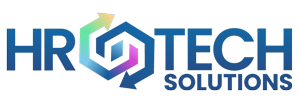The most effective technique for identifying HR technology needs
It’s normal today to identify a pain point in our organization or hit a roadblock and turn immediately to technology. This is increasingly true in our HR departments. First, we transitioned from paper to digital documents and Excel sheets. Now we are transferring to platforms.
This is a good thing; this technological advancement has allowed HR departments to stay more organized, streamline processes, and save countless headaches. But if the wrong technology is chosen and implemented, you risk wasting countless hours of implementation time, money spent, and a period of decreased productivity as your team adapts. For that reason, it’s critical to choose your technology wisely.
This is where a technology assessment comes into play. Taking the time to map out a strong technology assessment will give you an understanding of what you need to look for as you shop around for a new platform.
HR Technology Assessment Overview
The goal of a good HR technology assessment is to provide foresight into future technology needs in order to make stronger decisions at the consideration stage of your purchasing journey.
Through your HR Technology Assessment, you should understand the desired effect your new platform should have on your organization, including all opportunities, possibilities, challenges, and potential threats.
When to Conduct a HR Technology Assessment
If you answer yes to any of these questions, it’s most likely time to conduct a technology assessment to identify new HR technology solutions.
Ask yourself the following questions:
- Do you wish that you’re getting more from your current technology tools?
- Are you ready to scale your operations?
- Are you looking to save money and cut out unnecessary expenses?
- Is your HR staff overworked?
- Are your HR processes and department forms mostly handled on paper?
- Are your employees complaining about the usability of your current system?
How a Tech Assessment Will Help You Identify New HR Technology Solutions
With an effective technology assessment, your organization can benefit in a multitude of ways. Such as:
- Saving money by eliminating the technology tools or strategies that don’t work for your organization and focusing on the ones that do
- Streamlining your employee’s processes and procedures
- Increase employee engagement and retention
- Empower management
How To Conduct A HR Technology Assessment
Identify Requirements: Define what the HR department needs in terms of functionality, integration capabilities, scalability, and user-friendliness.
- Market Research: Investigate the various available HR platforms, focusing on those that meet the identified requirements.
- Evaluate Features and Compatibility: Assess the features of each platform against the department's needs, ensuring compatibility with existing systems.
- Cost Analysis: Consider the total cost of ownership, including purchase, implementation, training, and ongoing maintenance.
- Risk Assessment: Evaluate potential risks, such as data security concerns and the impact on current processes.
- Stakeholder Consultation: Involve key stakeholders, including HR personnel and IT staff, in the evaluation process for their insights and buy-in.
- Trial and Testing: If possible, conduct trials or demos to get a hands-on understanding of the platform's usability and effectiveness.
- Final Decision: Based on the gathered data and insights, make an informed decision that aligns with the company’s strategic goals and operational needs.
The Role of a HR Technology Consultant
Opting in for a HR technology Consultant can often be a wise and ROI-producing option for many organizations.
Often times, setting aside daily responsibilities to make time for an assessment isn’t realistic. Not to mention, there will be a learning curve to effectively identify and eventually implement the technology. It’s common to make mistakes in the first few tech assessments you do. This can be costly. Hiring a HR consulting firm can actually save you money, as they are experts who perform successful assessments and implementations daily.
Signs that hiring a HR consultant is the right option for you:
- You need the implementation to go seamlessly the first time
- You don’t have the bandwidth to tackle another project on top of your daily workload
- The cost of a failed implementation will cost you more than the cost of the consultant
At HR Tech Solutions, we have a team with an average of over 20 years of experience solving HRIS challenges.
HR Tech Solutions offers creative solutions to support your HR department in every way that is needed! Our experience in human resources, coupled with HRIS platform expertise, gives us the knowledge to serve your needs and exceed your expectations.
If you need help evaluating your next HRIS system or identifying opportunities for improvement, connect with us here for a quick chat!

.jpg?width=352&name=HR%20Tech%20Blog%20Template%20(5).jpg)
.jpg?width=352&name=Blog%20Banners%20(75).jpg)
.jpg?width=352&name=HR%20Tech%20Blog%20Template%20(9).jpg)